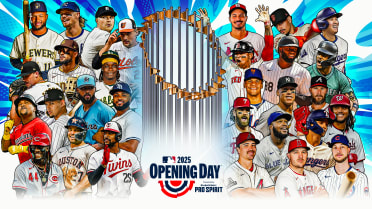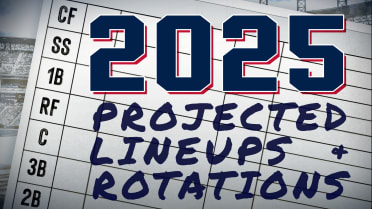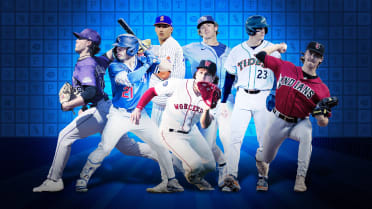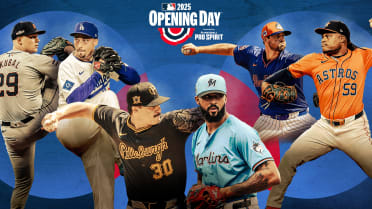ST. LOUIS -- Watching the 8-minute, 46-second video that has spurred millions to protest for the end of systemic racism in America moved Cardinals starter Jack Flaherty in a way that he couldn’t ignore.
“I think it finally kind of struck a nerve with everything going on,” Flaherty said Wednesday at Busch Stadium. “We have this platform, we have this opportunity to speak up, this opportunity to talk and to try to do anything we can to make change.”
In the wake of George Floyd’s death in Minneapolis under the knee of a police officer, Flaherty was one of several players who shared his thoughts on social justice through social media. In the last few weeks, Flaherty has become more outspoken on Twitter and Instagram, using his platform for advocacy. In recent days, he’s retweeted photos of Reds players wearing Black Lives Matter shirts during workouts and photos of protests happening around the nation.
“Something is in the works,” said Flaherty when asked if he planned to promote Black Lives Matter on the field.
Flaherty emerged as the Cardinals' ace last season and will be their Opening Day starter on July 24 against the Pirates. Entering his fourth year in the Majors, the 24-year-old has not only found his voice off the field but seized it. While continuing a throwing program in his hometown of Los Angeles during baseball’s stoppage, he spent more time on social media, sometimes hosting Instagram Live sessions and regularly appearing on podcasts. As his platform grew, so did his ideas for creating change.
On Wednesday, Flaherty spoke about how few Black players there are in MLB and how he wants to find a way to improve participation by making baseball accessible to kids from every community. He joined the Players Alliance, a group of current and former players around the league fighting for equality and inclusion, and began having conversations about the issues facing America. He shared a petition he signed with the Players Alliance to make Juneteenth a holiday. Some of his teammates reached out after Floyd’s death to talk about what was happening. Listening, understanding and educating was at the forefront of every conversation.
“I think guys are just more open to having that conversation and be able to promote some type of change,” Flaherty said. “Start small with the person next to you and maybe from there it grows, it can grow into something else.”
Just because baseball is back, Flaherty said, doesn’t mean that the conversations should stop. When the regular season begins, the fight for change shouldn’t disappear.
“This is not a time for sports to become a distraction,” Flaherty said. “That’s a big thing that everybody’s advocating for. Sports are coming back, slowly but surely, we’re getting there. But it’s not meant to be a distraction. It’s not meant to turn away from everything that has gone on in the past couple weeks.
“It’s not a time to forget everything that just went on, the protests that just went on and the changes that have been made. It’s trying to find a way to use sports and keep the conversations going.”
Asked if it was possible that a baseball player would kneel for the anthem when games start later this month, Flaherty said “absolutely.” He expressed support for Oakland A’s catcher Bruce Maxwell, who kneeled for the national anthem in 2017, joining the football players who were doing so to raise awareness to racial inequality and injustice.
“Nobody really had Bruce’s back back then,” Flaherty said. “Guys were unsure about what was going on, how to come together and do it the right way. All props to Bruce for doing what he did, for standing up for what was right. It’s a special thing that he did. … We kind of wish that we had been there for Bruce and had his back and been able to come together back then the way that we are now.”
Flaherty’s point, he emphasized, was to not make a political statement.
“It’s not a political thing,” Flaherty said. “It’s literally a human rights thing.”
Anne Rogers covers the Royals for MLB.com.




